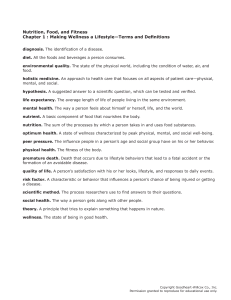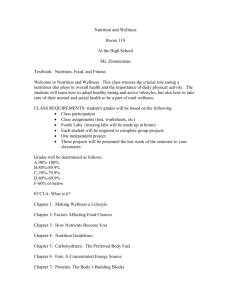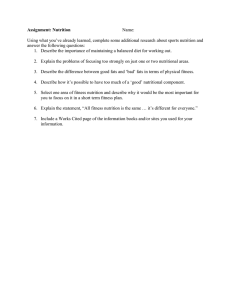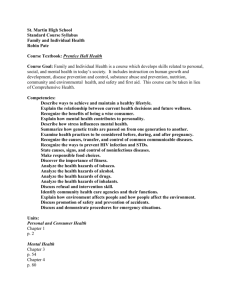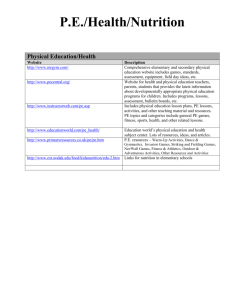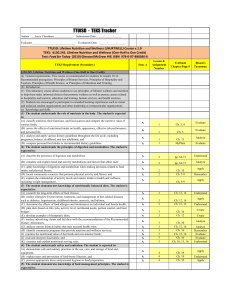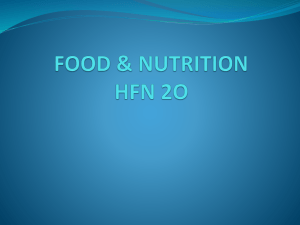Nutrition & Wellness Syllabus - High School Course
advertisement
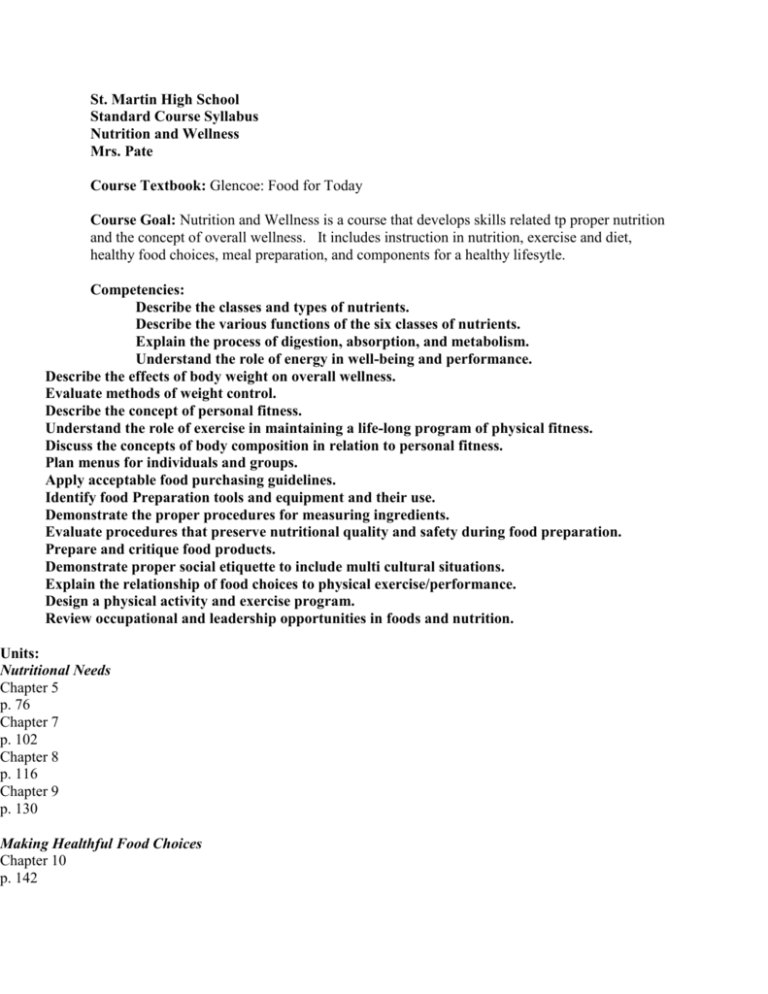
St. Martin High School Standard Course Syllabus Nutrition and Wellness Mrs. Pate Course Textbook: Glencoe: Food for Today Course Goal: Nutrition and Wellness is a course that develops skills related tp proper nutrition and the concept of overall wellness. It includes instruction in nutrition, exercise and diet, healthy food choices, meal preparation, and components for a healthy lifesytle. Competencies: Describe the classes and types of nutrients. Describe the various functions of the six classes of nutrients. Explain the process of digestion, absorption, and metabolism. Understand the role of energy in well-being and performance. Describe the effects of body weight on overall wellness. Evaluate methods of weight control. Describe the concept of personal fitness. Understand the role of exercise in maintaining a life-long program of physical fitness. Discuss the concepts of body composition in relation to personal fitness. Plan menus for individuals and groups. Apply acceptable food purchasing guidelines. Identify food Preparation tools and equipment and their use. Demonstrate the proper procedures for measuring ingredients. Evaluate procedures that preserve nutritional quality and safety during food preparation. Prepare and critique food products. Demonstrate proper social etiquette to include multi cultural situations. Explain the relationship of food choices to physical exercise/performance. Design a physical activity and exercise program. Review occupational and leadership opportunities in foods and nutrition. Units: Nutritional Needs Chapter 5 p. 76 Chapter 7 p. 102 Chapter 8 p. 116 Chapter 9 p. 130 Making Healthful Food Choices Chapter 10 p. 142 Chapter 11 p. 158 Chapter 14 p. 196 Chapter 15 p. 210 Nutrition Through the Life Cycle Chapter 13 p. 182 Safeguarding the Family’s Health Chapter 12 p. 172 Kitchen and Dining Areas Chapter 21 p. 296 Kitchen Utensils Chapter 22 p. 306 Planning Meals Chapter 16 p. 220 The Smart Consumer Chapter 17 p. 234 The Art of Cooking Chapter 24 p. 342 Chapter 25 p. 354 Chapter 26 p. 366 Chapter 28 p. 390 Parties, Picnics, and Dining Out Chapter 19 p. 266 Chapter 18 p. 250 Methods of Instruction: Textbook reading, lecture, class discussion, handouts, reports, presentations, guest speakers, demonstrations, and labs. Methods of Evaluation: Classwork, quizzes, labs, projects, tests. Grading Policy: Classwork 20%, quizzes 20%, labs, 20%, projects 10% tests 30%.

